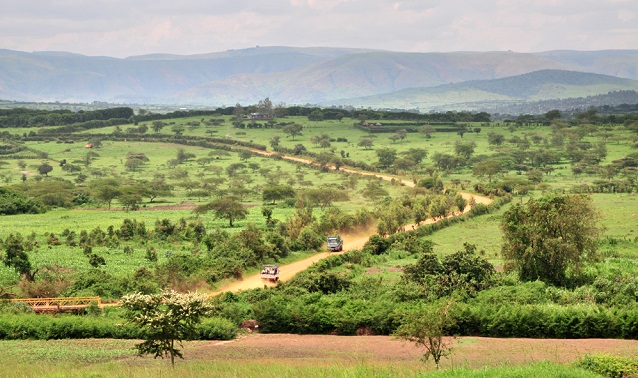
COMMENT | Gertrude Kamya Othieno | Sub-Saharan Africa, with its diverse cultures, languages, and histories, has made significant contributions to modern science that often go unrecognised in mainstream narratives. This region is a treasure trove of traditional knowledge, particularly in fields such as medicine, agriculture, and environmental science. These contributions are not merely remnants of the past but are actively shaping contemporary practices and understanding in various scientific domains.
Traditional Medicine and Healing Practices
One of the most notable contributions of sub-Saharan Africa to modern medicine lies in its rich tradition of herbalism and holistic healing practices. Across the region, indigenous communities have long relied on a vast array of medicinal plants for treating ailments. For instance, the use of the bitter leaf (Vernonia amygdalina) in West Africa is renowned for its effectiveness in managing diabetes and other chronic conditions. Research into such traditional remedies has led to the discovery of active compounds that have been incorporated into modern pharmaceuticals.
The World Health Organisation has recognised the importance of traditional medicine, acknowledging that up to 80% of the population in some African countries relies on it for primary healthcare.
Agricultural Innovations
Agriculture in sub-Saharan Africa has also seen substantial traditional innovations that have influenced modern practices. The region’s farmers possess profound knowledge of local ecosystems, which informs sustainable farming techniques. For example, the practice of intercropping—growing multiple crops in proximity—has been utilised for centuries to enhance biodiversity and improve soil health. These methods have been recognised as vital for food security and climate resilience, particularly in the face of global challenges such as climate change. By understanding local soil conditions, rainfall patterns, and crop interactions, sub-Saharan farmers have created systems that modern agricultural science is now seeking to replicate and adapt.
Astrology and Agricultural Practices
Astrological knowledge, integrated into agricultural practices, demonstrates another dimension of sub-Saharan contributions. Many communities in the region have historically used celestial events to determine the best times for planting and harvesting crops. This deep understanding of seasonal changes is echoed in contemporary agricultural science, which increasingly acknowledges the importance of lunar cycles and other natural rhythms in farming practices. This blend of astrology and agriculture showcases the interconnectedness of cultural beliefs and practical applications in sustaining livelihoods.
Cultural Perspectives on Health and Wellness
Sub-Saharan African perspectives on health and wellness highlight the significance of community and spirituality in healthcare. Traditional healers often play a central role in their communities, integrating social support and spiritual well-being into their practices. This holistic approach to health resonates with modern understandings of mental health, emphasising the importance of community connections and cultural beliefs in overall well-being. As healthcare systems worldwide begin to adopt more patient-centred approaches, the lessons from sub-Saharan traditions become increasingly relevant.
Environmental Conservation and Biodiversity
The relationship between sub-Saharan African cultures and their environments offers valuable insights into biodiversity conservation. Many indigenous practices promote sustainable land management and respect for natural resources, rooted in cultural beliefs and traditional ecological knowledge. This understanding of local ecosystems has been instrumental in conservation efforts, particularly as global awareness grows regarding the need for sustainable practices to combat biodiversity loss.
A Call for Recognition
Despite these profound contributions, the narratives surrounding sub-Saharan Africa in the context of science and knowledge have often been marginalised or overlooked. The recognition of these contributions is crucial not only for acknowledging the region’s rich heritage but also for fostering a more inclusive understanding of global knowledge systems. It is essential to celebrate the wisdom of traditional practices and integrate them into modern scientific discourse.
As we reflect on the contributions of sub-Saharan Africa to modern science, it is vital to challenge the prevailing narratives that downplay or erase these influences. By recognising and valuing the knowledge embedded in these diverse cultures, we can work towards a more equitable and inclusive future in science, one that respects and learns from all traditions. In doing so, we honour the legacies of those who have contributed to our understanding of health, agriculture, and the environment, ensuring that their wisdom continues to inform and inspire future generations.
****
 Gertrude Kamya Othieno | Political Sociologist in Social Development (Alumna – London School of Economics/Political Science) | Email – gkothieno@gmail.com
Gertrude Kamya Othieno | Political Sociologist in Social Development (Alumna – London School of Economics/Political Science) | Email – gkothieno@gmail.com
 The Independent Uganda: You get the Truth we Pay the Price
The Independent Uganda: You get the Truth we Pay the Price



